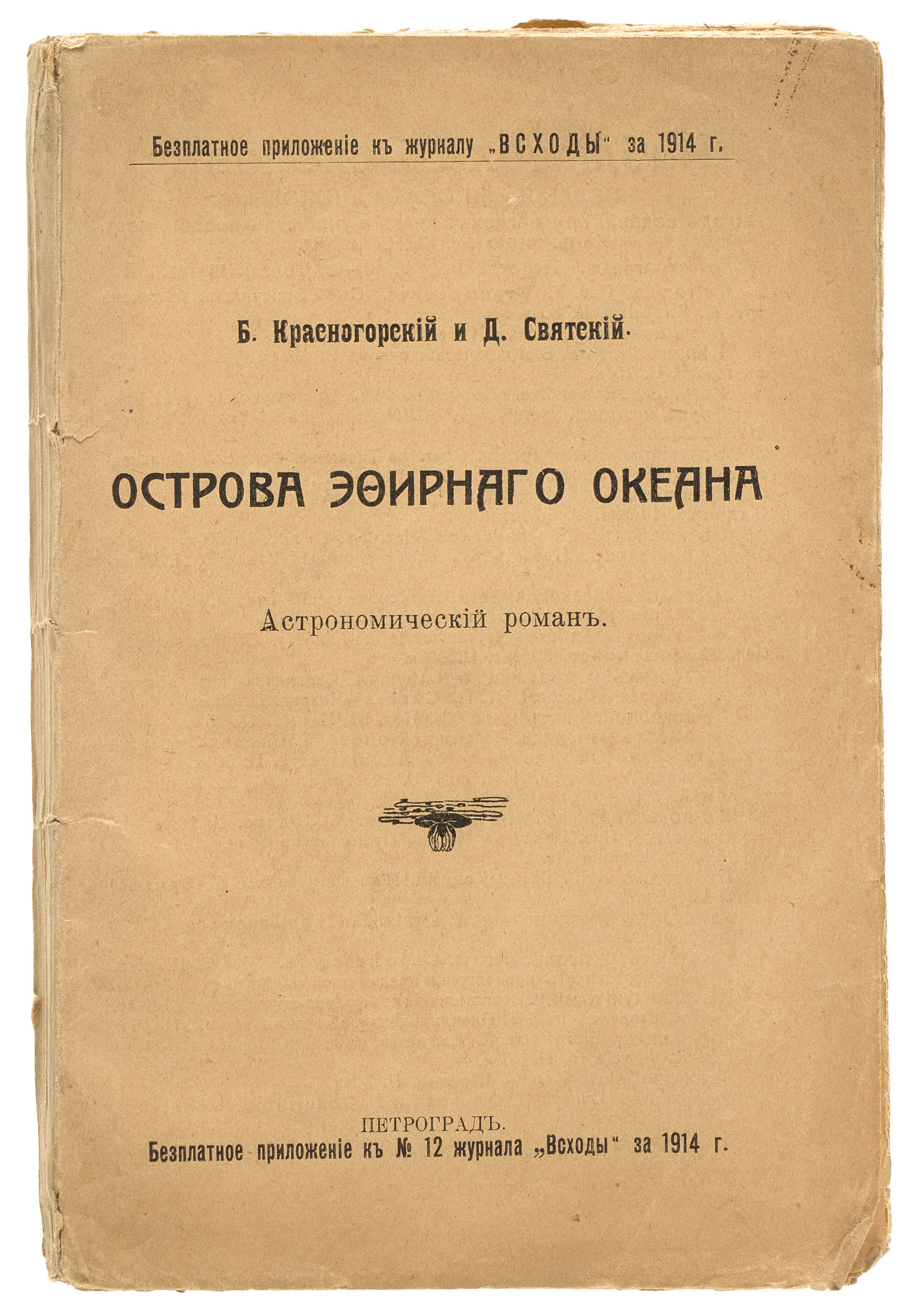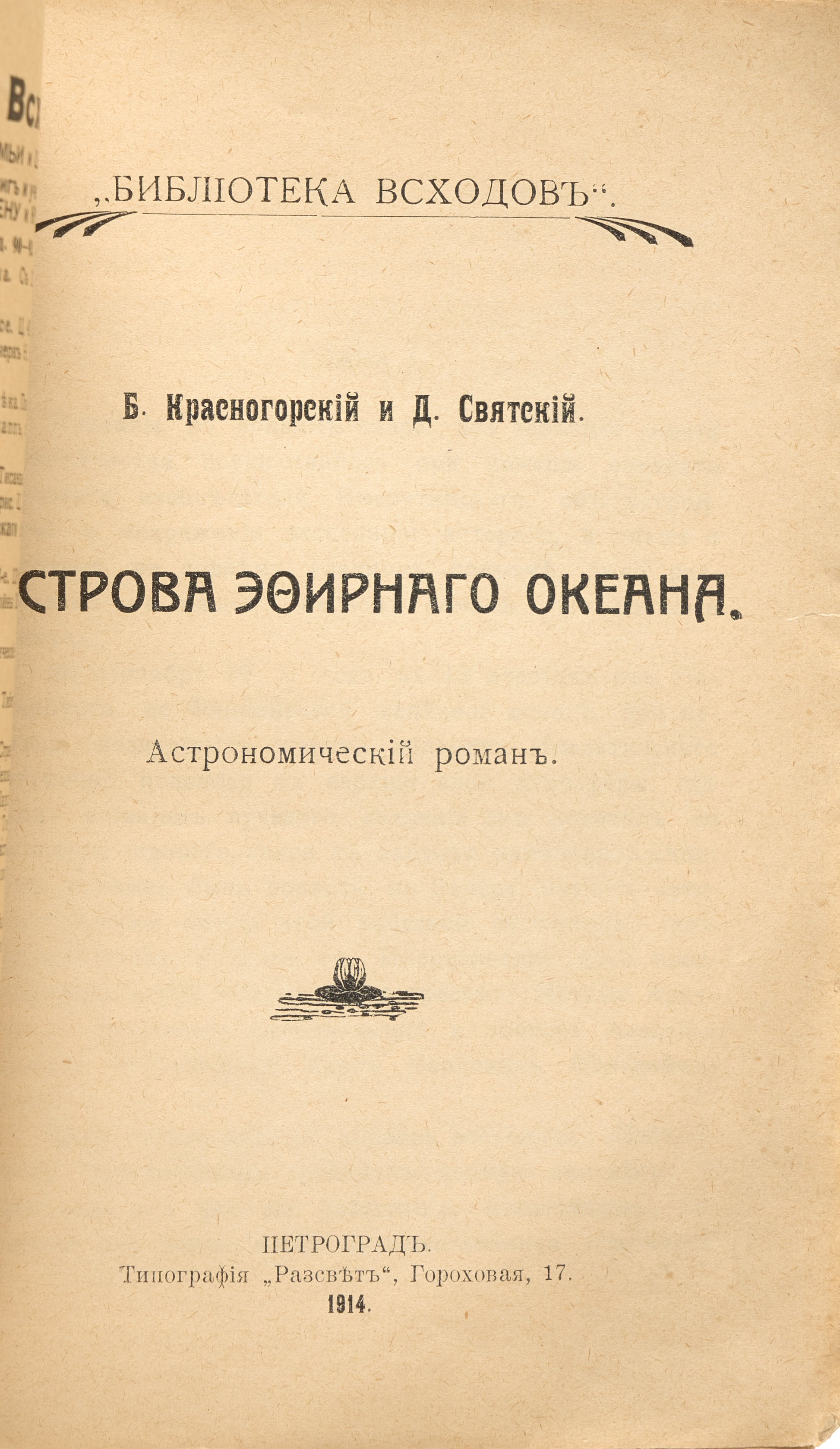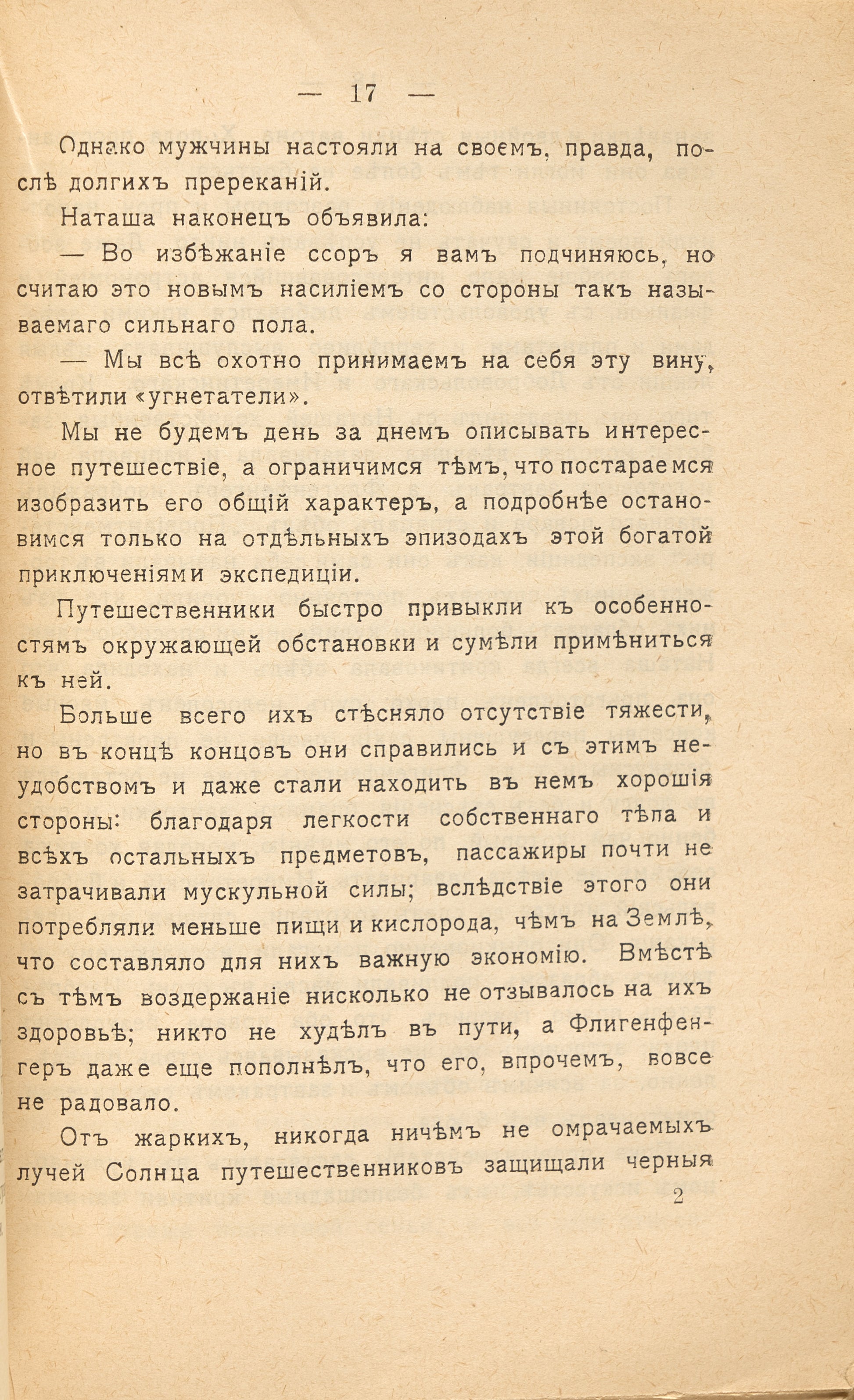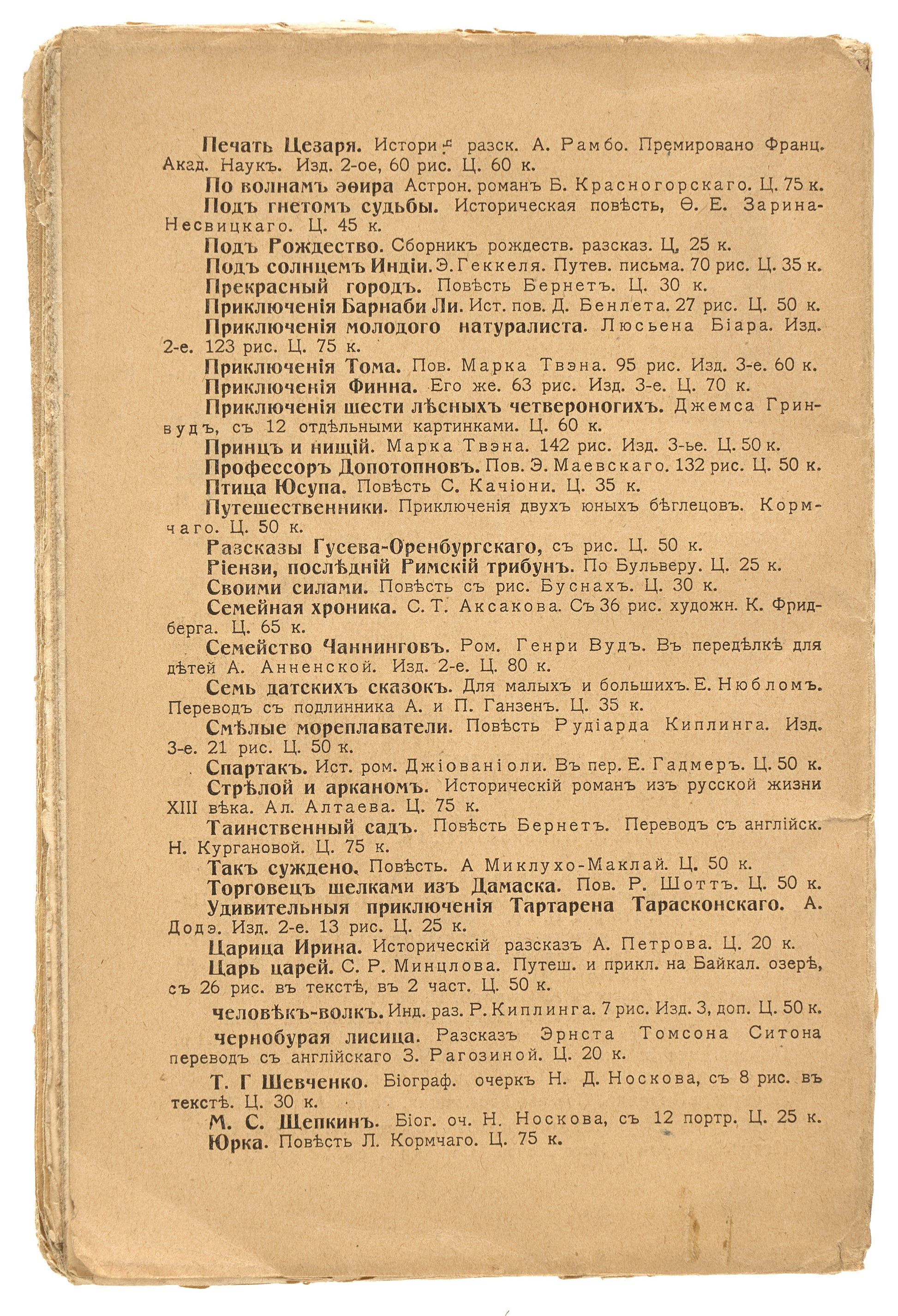Krasnogorskii, B., Sviatskii, D.
Islands of the Ethereal Ocean: An Astronomical Novel. The spacecraft is described in detail
Islands of the Ethereal Ocean: An Astronomical Novel. The spacecraft is described in detail
Couldn't load pickup availability
Krasnogorskii, B., Sviatskii, D. [Islands of the Ethereal Ocean: An Astronomical Novel]. Ostrova Efirnogo Okeana: Astronomicheskii roman.
Free supplement to No. 12 of the journal 'Vskhody'.
Petrograd, Tipografiia “Razsvet”, 1914.
8vo, 256 pp., ill.
In original wrappers.
Near very good condition, lightly rubbed, tears to spine.
Early Russian science fiction novel. First edition.
This novel is a sequel to the earlier work 'Po Volnam Efira' ('On the Waves of the Ether', 1913), written by journalist and author Boris Krasnogorskii. In this story, a group of enthusiasts from the Petrograd-based club 'Nauka i Progress' ('Science and Progress') successfully launches an interplanetary spacecraft. The book is considered a notable example of Russian pre-revolutionary science fiction, reflecting the era’s fascination with space exploration, technological progress, and utopian ideals.
The vessel, equipped with a solar sail—a large mirror that reflects sunlight to generate propulsion—embarks on a journey through the 'ethereal ocean', a poetic term for outer space. Among other challenges, the protagonists' spacecraft is pursued by a rival expedition, which fires several cannon shots at them. Although the authors do not name the country behind the second craft, clues such as the German-sounding name 'Gustav Sternzeller', the use of 'Frau' as a form of address, and the geographic hints (a country bordering both France and Russia) clearly point to Germany.
A projectile from the enemy craft damages the rudder, causing the Russian ship to drift. Near Jupiter, the crew manages to stabilize the flight and begins the return journey toward Venus, where the spacecraft eventually lands.
While exploring the planet, the travelers discover drinkable water, edible shellfish, and nuts. Eventually, they encounter and befriend two Germans—Stein and Blumenberg—who had crash-landed during their own descent. In the end, the protagonists are able to repair their ship and return to Earth.
The spacecraft is described in detail, incorporating contemporary scientific ideas such as solar pressure propulsion (solar sail), the nebular hypothesis, and theories of the ether, which at the time was still believed to be the medium that filled outer space.
The novel was co-authored by Daniil Sviatskii (1881–1940), an astronomer and meteorologist, and a member of the Russian Society of Cosmology Enthusiasts (Russkoe obshchestvo lubitelei mirovedeniia), a learned society devoted to the popularization of natural and physical-mathematical sciences. Due to his involvement in this society, Sviatskii was arrested in 1930 and sent to work on the construction of the White Sea–Baltic Canal. After his release, he lived and worked in Kazakhstan, where he wrote a major scholarly work, 'Essays on the History of Astronomy in Ancient Rus’', which was published only twenty years after his death.
OCLC locates one copy of this edition only: in the National Library of Poland.








